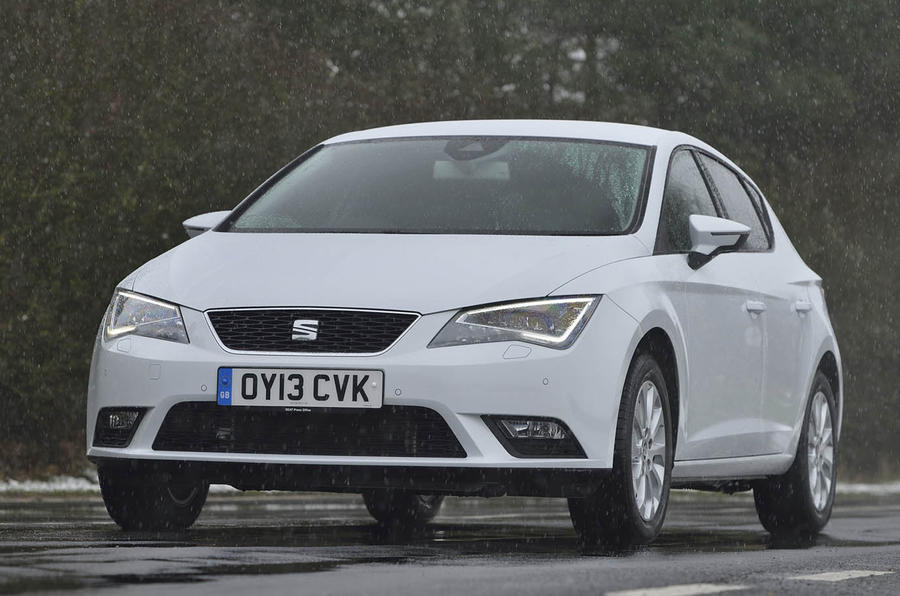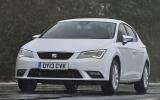What is it?
The most efficient version of the Seat Leon ever produced. It's based on the current 1.6-litre TDI diesel model, with power increased to 108bhp over the 104bhp of the standard car, but the same 184lb ft of torque.
Changes to this super-frugal version include suspension that has been lowered by 15mm over the normal Leon, to help cut drag by ten per cent, and a unique grille. The new Leon also benefits from a kerb weight that's some 90kg lighter than the older Leon Ecomotive.
Other fuel-saving measures include special low rolling resistance tyres and an extra gear, with this model featuring a six-speed manual transmission in place of the regular 1.6-litre TDI's five-speed 'box.
All those changes help this Leon to achieve headline-grabbing economy figures of up to 85.6mpg on a combined cycle, and emissions of 87g/km of CO2. That means the Ecomotive costs nothing to tax and is an appealing proposition to company car drivers.
Among the Leon's competition is the VW Golf Bluemotion, which returns 88.3mpg and 85g/km of CO2 – but it costs more than the £19,660 Leon, at £20,055.
What's it like?
Quite frugal. While we didn't quite manage to reach Seat's claimed 85.6mpg on a combined cycle we did see over 50mpg following our test, and we have no doubt you'd start to see the difference on repeat longer motorway journeys.
The Leon's 108bhp 1.6-litre diesel engine pulls well from low down, but it's a noisy engine and at speed it's noticeably intrusive - a matter not helped by there also being plenty of wind and tyre noise.
One issue is as a result of the Ecomotive's very long gear ratios. It's not difficult to bog the engine down, especially when moving off or accelerating on an incline.
While the Seat Leon handles well about town thanks to quick and accurate steering - which is admittedly devoid of any real feedback - the ride quality of this frugal hatchback suffers due to its lowered suspension.
Pleasingly very little has been altered in the Leon's cabin. That means it benefits from an ergonomic layout and decent build quality. It might not be the flashiest interior out there, but it's functional and comfortable for both drivers and passengers.
The Leon Ecomotive comes with a decent level of standard equipment including cruise control, air-con, Bluetooth connectivity and Seat's touch-screen infotainment system. All of that is further boosted by a free Technology Pack upgrade which adds LED headlights, a DAB radio and sat-nav.
Should I buy one?
Probably not – because in reality the sacrifices made for the Ecomotive's extra 11.3mpg over the standard 1.6-litre TDI Seat Leon come at a high price.
Refinement really takes a hit at speed, as does ride quality about town, and in order to benefit from the Leon's extra frugality you either have to cover plenty of motorway miles or have very sharp eco-driving skills.
We're not sure whether the £990 premium for the Ecomotive model over the standard car is really good value either, especially when the standard model can already return a claimed 74.3mpg on a combined cycle, alongside CO2 emissions of 99g/km.

















Join the debate
Add your comment
I just don't get it...
The clue is in the 'German' above.
This VAG car does indeed look below par.
It's a shame.....
Diesel's advocate!
Whereas a colleague - a great advocate of diesel - has a Peugeot 208 1.4L and averages just over 65mpg. Another is touching 60mpg with a Renault Megane.
It all depends on the driver's skill. The Autocar testers however probably drive like my partner and are happy to get just over half the claimed mpg figures.